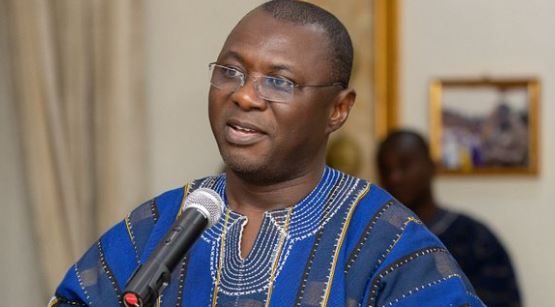2024 Mid-Year Budget Review: Reduction in interest payment must create fiscal space
Audit and accounting firm, Deloitte Ghana, says the reduction in interest payments by government should create the needed fiscal space to implement key government programmes to revitalise and transform the economy.
The debt restructuring together with the International Monetary Fund (IMF) programme has effectively reduced interest payment from GHS55.9 billion (largest expenditure item) to GH¢48.0 billion (second largest expenditure item) according to Deloitte.
In its analysis of the 2024 Mid-Year Budget and Economic Policy, Deloitte noted that government projects an increase in capital expenditure investments from 2.5 per cent of gross domestic product (GDP) in 2023 to 2.8 per cent of GDP in 2024.
“This signals a strong focus to improve social infrastructure and other key amenities amidst the fiscal consolidation programme.
Allocation of such spending to priority sectors can spur strong economic performance in the medium to long term,” Deloitte said.
Tax handles
The audit and accounting firm also touched on the tax regime, saying the decision in the mid-year review to maintain existing tax handles presents some respite for businesses and individuals as a further increment in taxes could hamper the productivity of the private sector due to the business environment being characterised by relatively high inflation and exchange rate depreciation.
Insights
Total revenue and grants for 2024 have been revised upward to GH¢177.2 billion compared to the 2024 budget of GH¢176.4 billion, representing a 0.5 per cent increase.
Non-tax revenue for 2024 is projected to increase to GH¢15.6 billion compared to the 2024 budget of GH¢14.8 billion, representing a five per cent increase.
Total expenditure for 2024 has been revised downward to GH¢219.7 billion compared to the 2024 budget of GH¢226.7 billion, representing a 3.2 per cent decrease.
The decline in total expenditure is expected to result from savings on interest payment from GH¢55.9 billion to GH¢48.0 billion owing to government’s completion of external debt restructuring in respect of bilateral, multilateral and Eurobond debts.
The Government in the first half of 2024 recorded a budget deficit (cash basis) of GH¢36.1 billion (3.4% of GDP) against a target of GH¢35.1 billion (3.3% of GDP).
Budget deficit (cash basis) is projected to improve (to 5.3% of GDP) by the end of 2024, compared with an initial budget of 5.9 per cent of GDP.
GDP growth
Expressing its views on GDP growth, Deloitte said it was important to note that unlike prior years, the 2024 mid-year budget statement did not request for Parliament to approve additional allocation.
Instead, it observed that the mid-year budget statement focused mainly on tracking progress on implementation of the 2024 budget and also indicated the government’s revised budget for some key economic indicators.
Overall, it said the information shared by the Finance Minister suggested the economy was recovering despite economic challenges in recent years.
To Deloitte, it appears the improved performance in the first half of 2024 has raised government confidence which should affect investor confidence, leading to the more favourable revisions made to the budget for 2024.
“In terms of sectoral performance, it is exciting to see the industry sector expand by 6.8 per cent in quarter one (Q1) 2024, following contraction in 2023 and only marginal growth prior to 2023.”
“The mining and quarrying subsectors emerged as the major drivers of the industry sector growth by registering a 12.9 per cent growth. This sector’s resurgence reflects an uptick in global commodity prices.”
Hence, Deloitte says it expects to see a positive impact on the economy as jobs, wages and community infrastructure are all expected to increase.
GDP projections
Overall GDP is projected to grow by 3.1 per cent in 2024, down from the initial 2024 budget of 2.8 per cent. Similarly, non-oil GDP growth has been revised to 2.8 per cent, up from the 2024 budget of 2.1 per cent. Overall GDP is projected to grow at an average rate of 4.4 per cent per annum over the period 2024- 2027.
In 2023, Ghana’s economy expanded by 2.9 per cent compared to a revised target of 2.3 per cent. In addition, non-oil GDP also expanded by 3.3 per cent relative to a revised target of 2.8 per cent.
The growth in 2023 is largely driven by improvement in the service (5.5%) and agriculture (4.5%) sectors, with the industry sector contracting by 1.2 per cent.
GDP growth in the first quarter of 2024 (Q1 2024) was 4.7 per cent, which is higher than the Q1 2023 growth of 3.1 per cent. The Q1 2024 growth was mainly spurred by 6.8 per cent growth in the industry sector.



